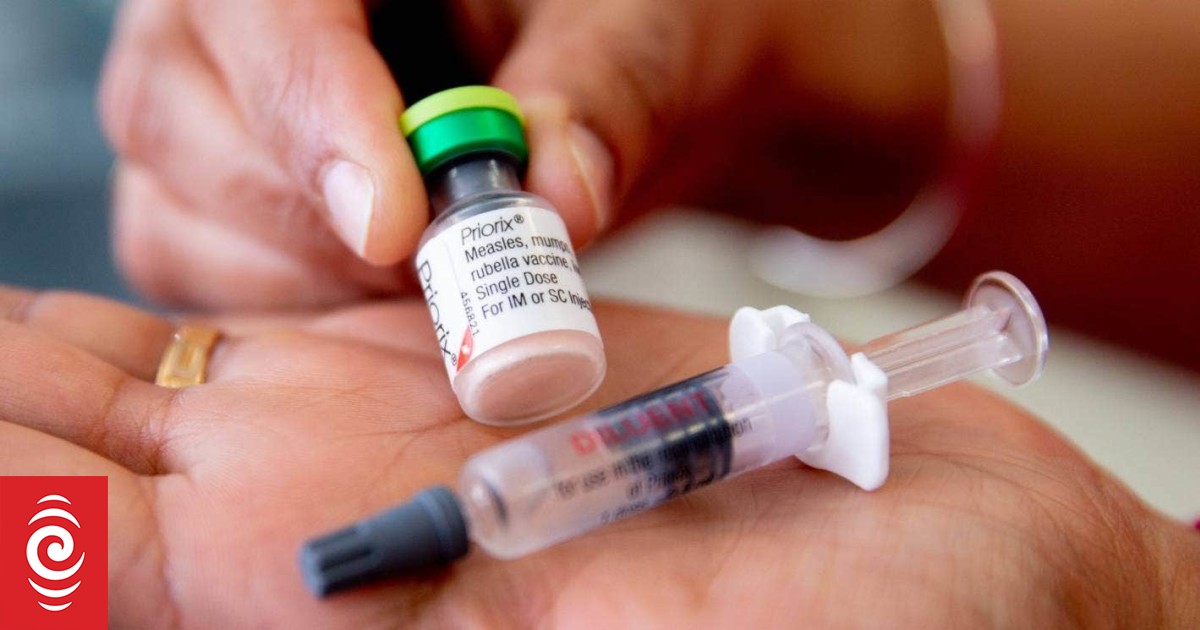A Ministry of Health update to the minister said vaccine coverage was below the level required to prevent widespread outbreaks.
Photo: Tom Lee / Stuff
A general practitioner warns the country’s hospitals and doctor clinics are already strained, and would not cope with a measles outbreak.
On Thursday, healthcare workers were part of a nationwide strike, concerned that poor working conditions and staff shortages were putting patients at risk.
Eight cases of measles have been confirmed and health officials have warned of the risk of an outbreak.
Immunisation Advisory Centre senior adviser Mamaeroa David said hospitals and family doctors would not cope, if there was an outbreak.
“Our hospital systems are overwhelmed and not coping already, and as a GP in the community, our waiting times are 3-4 weeks,” David said. “I’ve been a GP for 11 years and it has never been that long.
“The perfect storm continues to build and it’s frightening. My biggest concern is we’re going to start actually losing children to measles this round.”
In 2019, a series of measles outbreaks resulted in more than 2000 people contracting the virus and more than 700 needing hospital care.
Auckland was the worst-hit region with 1736 cases.
The consequences were devastating for Samoa, when a person contagious with measles travelled there, resulting in 5700 cases and 83 deaths.
“Some of those were children in the same family, so it was horrific,” David said. “They’re kind of erased from our memory, because then COVID-19 came along… but I have not forgotten that and my colleagues at Middlemore Hospital have not forgotten that outbreak.”
She said, if there was another measles outbreak and people could not get prompt appointments with their family doctor, more people would need hospital care.
“We can’t always predict which children will get sick or unwell. These kiddies need 24-hour care to get them through the worst and out the other side.
“It takes a lot of care to look after kids with measles.”
A Ministry of Health update to the Minister of Health Simeon Brown on measles preparedness in May said vaccine coverage was below the level required to prevent widespread outbreaks.
At least 95 percent coverage is needed to achieve herd immunity, which prevents community spread, but the latest stats show 82 percent of the population are covered.
The update also said there were other gaps and the country was at “high risk” of an outbreak that would put pressure on the health system.
Apia is shut down during a measles epidemic.
Photo: RNZ / Alex Perrottet
“Given existing pressures across the system, it remains likely that a large and/or prolonged epidemic would create considerable pressure on the
health system that would likely require additional funding and redirection of existing resources.”
The update said improving immunisation had been a key focus area.
David said a vaccination drive was needed to make immunisation against measles accessible for all communities.
“The No.1 resource that we need to be pouring into is vaccination. Those community days, weekends and after-hours vaccination services that we did during COVID are very much what we need everywhere.”
She said the vaccine was safe to administer, including to babies at six months.
“We have a very effective vaccine that will stop these kids from getting measles.
“I don’t want to imagine the nightmare of another 2019 outbreak, the number of children who would have needed intensive care… and the enormous fear we’re not going to get away with a zero death rate this time.”
Sign up for Ngā Pitopito Kōrero, a daily newsletter curated by our editors and delivered straight to your inbox every weekday.

